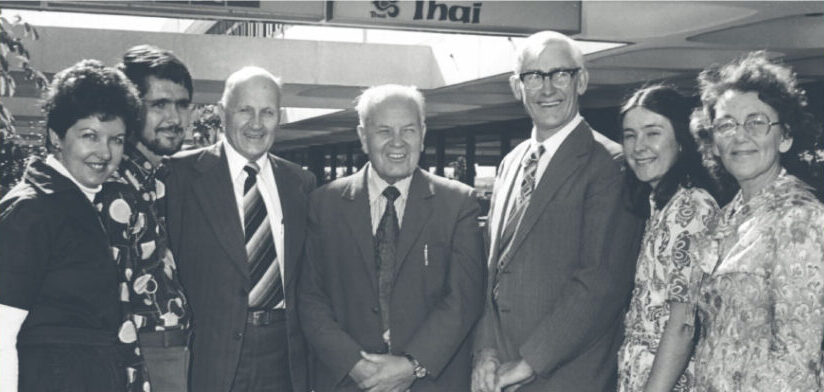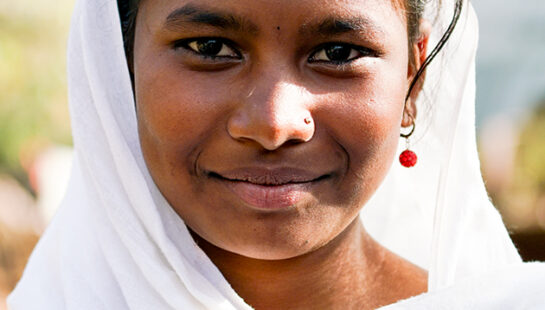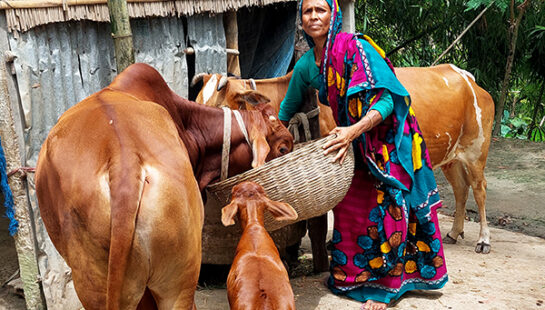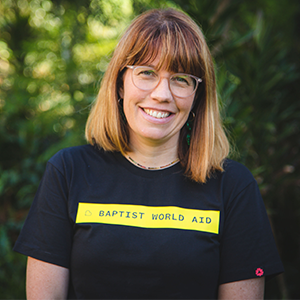Remember Live Aid? For those whippersnappers too young to recall, in 1984 Bob Geldolf, an ageing pop star, was moved by the horrific famine in Ethiopia to do something to help.
So, he gathered a band of his peers—some of the most prominent names in the English music scene—to record a Christmas banger with the hopes of raising £70,000. Feed The World stayed at number one on the charts for five weeks and raised £8,000,000 in sales. The Live Aid concerts which followed raised another £140,000,000. It’s still raising money every time it’s played now, 40 years later.
Today, Geldof has regrets for creating what he now calls ‘one of the worst songs’ ever. He was responding to more recent criticism of some of the song’s lyrics that lean into an ‘us’ and ‘them’ vibe, and are very ‘on the nose’ in a post-colonial world. For example, Ethiopia’s population is over 60 per cent Christian. So, the song’s repeated question, ‘do they know it’s Christmas time at all?’ rings a bit ignorantly. Additionally, the song connected Ethiopia and famine so tightly that for decades after, people made an immediate association between the two, even though Ethiopia has a rich history and culture quite apart from its challenges. And don’t even get me started on the use of undignified images of emaciated children and people crying of hunger.
Yes, from this distance, the problems are obvious. But it’s worth recognising that the past 40 years has seen enormous change across the whole international aid and development sector, and Baptist World Aid has also taken this journey from a welfare approach to one that prioritises dignity and empowerment for all people.
A Different Time
Back in 1959, Baptist World Aid started as a small group of Christians who wanted to see faith in action, prayerful dependence upon God, and long-term solutions to poverty so that all people can experience fullness of life.

We hold the same values today, but the context is very different. At that time, international aid was highly politicised and used to sure up alliances as the world prepared for the Cold War to heat up. As a result, there was a lot of focus on the large investments made from so-called ‘first world’ governments to ‘third world’ countries, but little acknowledgement, funding or national oversight of faith-based humanitarian aid.
Our local Partners then were largely missionaries, and projects were very basic—for example, bags of rice or seeds to help farming families in times of crisis, or assistance with houses damaged by storms. We also did a lot of work helping the many people still displaced by the war.
The sixties saw a much-needed wave of changes in attitudes around Western domination of what was still known as ‘the third world’. People began to understand that foreign aid should be focused locally. This was undergirded by a belief that people in vulnerable communities should be active participants in any sustainable development. The Australian government began to see NGOs—with their small and locally-led aid model—as having an important place in aid and development.
Then in 1974, we began our Child Sponsorship program—Support An Orphan (SAO). It was enthusiastically supported by Baptists around Australia and soon became Baptist World Aid’s major focus. SAO connected supporters in Australia with families in participating overseas communities. These families received direct financial support, along with educational and medical costs paid for by individual sponsors. Our local Partners were churches and our focus was on the children’s welfare. Through this program thousands of children were fed, housed and educated, and we could report immediate improvements in their lives.
But like Bob Geldof discovered, the 1990s saw fresh perspectives on humanitarian aid and development, including criticism directed at formerly celebrated and effective initiatives. Critics argued that many programs were unhelpfully focused on the deficits of impoverished people, and Child Sponsorship in particular was accused of engendering dependency and entrenching power imbalances. Regrettably, children in many sponsorship programs were not being empowered to become robust adults able to carve out their own future.
From ‘Supporting Orphans’ to Developing Communities
And so we made significant changes to the way our Child Sponsorship program worked to bring us in line with research-led best practice. For a start, we changed the name from Support An Orphan to Child Centred Community Development, and later, Child and Youth Communities for Change. But it was much more than a marketing move.
Concern for children’s welfare had always shaped our programs, but after 2000, our emphasis shifted to an integrated community development approach, involving whole families and communities in programs that are both effective and sustainable in fighting poverty. We also became accredited with various external governing bodies that provided increased funds for some programs, along with welcome accountability.
Our local Partners can implement programs that target the strengths of local people and support them to identify and overcome their challenges.
With the focus now zoomed out to include whole communities, our local Partners can implement programs that target the strengths of local people and support them to identify and overcome their challenges. We now have numerous self-help groups in many vulnerable communities. These groups gather locals, usually women, together to support each other as they develop plans that benefit their own family and the whole community. Our Partners play a supporting role—providing experts to offer training and such, but it’s local people who are driving change with things like budgeting and savings plans, updating farming practices, improving water quality, installing toilets, and exploring opportunities for diversified income models. We no longer speak of ‘beneficiaries’ but of ‘participants’ because we recognise that people are not receiving a handout from our donors but are being supported to do the hard work of transforming their own lives and meeting the challenges of their communities. They should be given the credit for this effort, as they are the heroes in their own stories.
God has worked powerfully through our supporters to help hundreds of thousands of people since our beginnings in 1959.
And we praise him for this partnership. But we’re also committed to humility that allows us to recognise a better way, and to change accordingly. For example, we recently made a small change in the way we promote child sponsorship. We now cover their faces in photographs to protect children from potential harm, and preserve their dignity.
So yeah, Live Aid had some problems. But it also raised a lot of resources that saved lives at a time when others were helplessly wringing their hands. The generosity of people who donated time or money was honourable and did immense good. Perhaps we can be generous enough to recognise they were doing their best. It’s easy enough to look back on the past with cynical eyes, but isn’t it better to humbly recognise that we all fall short of perfection and that when we know better, we do better? I think there are worse legacies, Bob.



 Baptist World Aid
Baptist World Aid

 Meredith Benson,
Meredith Benson,